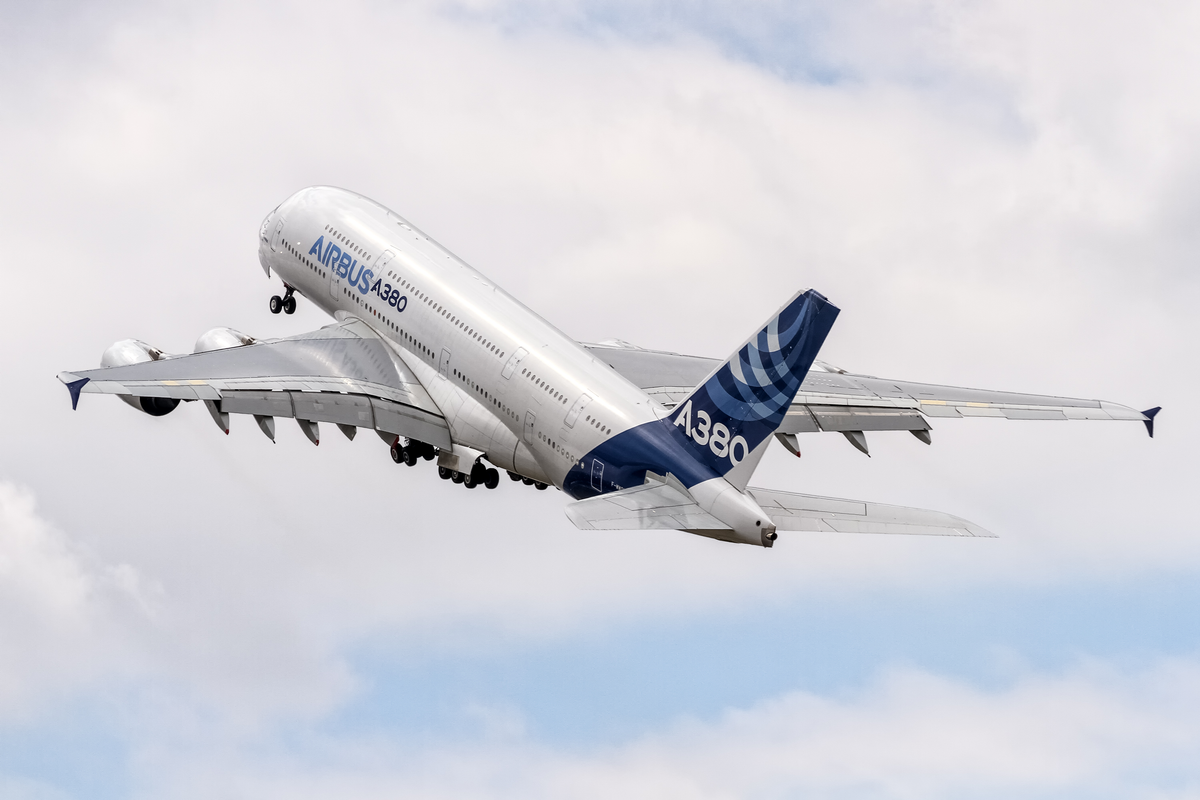Airbus A380 completes flight fueled by cooking oil
Fossil fuels are in the news for all the wrong reasons lately. Whether it's their contribution to global climate change or the fact that price and supply depend on violent geopolitics, there are more reasons than ever to switch to cleaner energy sources.< /p>
In the world of aviation, that means finding a cleaner source of fuel. A test earlier this year took place in pursuit of this exact goal, where an Airbus A380 jetliner was flown solely on fuel derived from cooking oil.
 An Airbus A380 served as a test bed for 100% SAF fuel, running an engine solely on the by-product of cooking oil. The world's largest airliner sees its use decline as smaller, more fuel-efficient aircraft take over.Credit: Airbus
An Airbus A380 served as a test bed for 100% SAF fuel, running an engine solely on the by-product of cooking oil. The world's largest airliner sees its use decline as smaller, more fuel-efficient aircraft take over.Credit: AirbusGlobally, aviation activity produces approximately 2.1% of carbon dioxide emissions attributable to air human activity. In total, it accounts for 12% of emissions from transportation as a whole. While emissions have declined thanks to the impacts of the COVID-19 pandemic, overall these emissions are trending up as the industry has resumed normal operations.
One way to reduce this figure is to switch to a sustainable fuel source. When fossil fuels are dug up and burned, they release stored carbon into the atmosphere, creating warming. However, the so-called Sustainable Aviation Fuel (SAF) circumvents this problem by relying on organic ingredients. The idea is that the carbon dioxide released by its combustion is offset by the carbon dioxide absorbed by the crops and the organic matter used in its production. It's imperfect, and certainly not a true zero-emissions solution; apart from losses and inefficiencies, combustion engines of all types tend to produce other harmful gases like nitrogen oxides. However, it is still a serious improvement over traditional fossil fuels; Airbus says flying planes on SAF could result in a 53% to 71% reduction in carbon output.
To demonstrate the concept, an Airbus A380 flew on March 25 from Blagnac Airport in Toulouse, France, where Airbus is based. The plane flew for three hours, with a Rolls-Royce Trent 900 jet engine running on 100% sustainable aviation fuel. Another test was run on March 29, where the fuel was used during the demanding take-off and landing phases.

Fossil fuels are in the news for all the wrong reasons lately. Whether it's their contribution to global climate change or the fact that price and supply depend on violent geopolitics, there are more reasons than ever to switch to cleaner energy sources.< /p>
In the world of aviation, that means finding a cleaner source of fuel. A test earlier this year took place in pursuit of this exact goal, where an Airbus A380 jetliner was flown solely on fuel derived from cooking oil.
 An Airbus A380 served as a test bed for 100% SAF fuel, running an engine solely on the by-product of cooking oil. The world's largest airliner sees its use decline as smaller, more fuel-efficient aircraft take over.Credit: Airbus
An Airbus A380 served as a test bed for 100% SAF fuel, running an engine solely on the by-product of cooking oil. The world's largest airliner sees its use decline as smaller, more fuel-efficient aircraft take over.Credit: AirbusGlobally, aviation activity produces approximately 2.1% of carbon dioxide emissions attributable to air human activity. In total, it accounts for 12% of emissions from transportation as a whole. While emissions have declined thanks to the impacts of the COVID-19 pandemic, overall these emissions are trending up as the industry has resumed normal operations.
One way to reduce this figure is to switch to a sustainable fuel source. When fossil fuels are dug up and burned, they release stored carbon into the atmosphere, creating warming. However, the so-called Sustainable Aviation Fuel (SAF) circumvents this problem by relying on organic ingredients. The idea is that the carbon dioxide released by its combustion is offset by the carbon dioxide absorbed by the crops and the organic matter used in its production. It's imperfect, and certainly not a true zero-emissions solution; apart from losses and inefficiencies, combustion engines of all types tend to produce other harmful gases like nitrogen oxides. However, it is still a serious improvement over traditional fossil fuels; Airbus says flying planes on SAF could result in a 53% to 71% reduction in carbon output.
To demonstrate the concept, an Airbus A380 flew on March 25 from Blagnac Airport in Toulouse, France, where Airbus is based. The plane flew for three hours, with a Rolls-Royce Trent 900 jet engine running on 100% sustainable aviation fuel. Another test was run on March 29, where the fuel was used during the demanding take-off and landing phases.
What's Your Reaction?









![New Photo Reveals Extent of Centaur V Anomaly Explosion [Updated]](https://cdn.arstechnica.net/wp-content/uploads/2023/04/IMG_6577-760x380.jpg)











